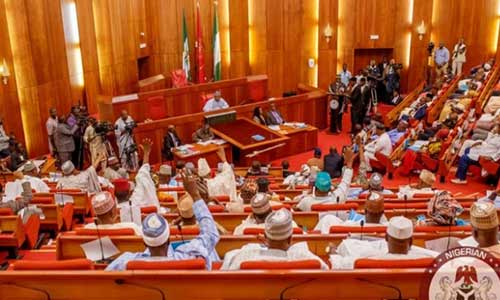The Nigerian Senate has passed the Investments and Securities Repeal and Re-enactment Bill, 2024.
This signals a significant shift in the nation’s approach to capital market regulation.
The bill was approved during Wednesday’s plenary session after the adoption of the report presented by the Senate Committee on Capital Markets, led by Senator Osita Izunaso.
The bill, sponsored by Senator Bamidele Opeyemi and co-sponsored by Izunaso, seeks to overhaul existing regulations to align with global best practices, safeguard the securities market, and encourage investor confidence.
- Advertisement -
The proposed legislation designates the Securities and Exchange Commission (SEC) as the apex regulatory authority in Nigeria’s capital market. It introduces innovative regulatory frameworks for digital currencies, blockchain technology, and cryptocurrency transactions, recognizing the need for oversight in fintech activities.
Senator Izunaso noted that the bill aims to combat financial malpractices such as market abuse and insider trading, while fostering investor protection.
“This re-enactment will not only drive growth and diversification in the capital market but also create a conducive atmosphere for both local and foreign investors,” he remarked.
Additionally, the bill proposes stricter penalties for financial fraud. For instance, Ponzi scheme operators could face a minimum fine of ₦20 million, imprisonment for up to 10 years, or both.
During public hearings, stakeholders expressed unanimous support for the bill, citing its potential to modernize Nigeria’s financial markets and enhance competitiveness. It also introduces diversified financial instruments like derivatives and Exchange Traded Funds (ETFs) to deepen market offerings and meet diverse investor needs.
- Advertisement -
The bill’s passage is expected to boost investor confidence, create job opportunities, and expand Nigeria’s economy. It addresses overlapping regulatory roles among agencies, ensuring transparency and operational efficiency.
The Senate’s endorsement of the bill reflects a commitment to fostering economic growth and protecting investors, a vital step in modernizing the Nigerian capital market and positioning Nigeria as an attractive destination for investment.










